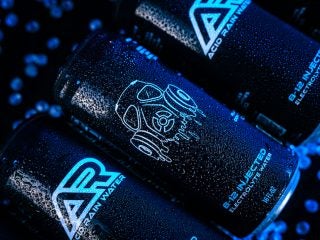Electrolytes are minerals in your blood, urine, tissues, and body fluids. They are commonly called electrolytes because they have an electric charge.
Sodium, potassium, chloride, calcium, phosphate, and magnesium are all electrolyte minerals.
Electrolytes aid in numerous essential body functions. These processes include maintaining bodily water and blood pH levels, transporting waste out of your cells and nutrients into your cells, and guaranteeing the proper operation of your heart, brain, muscles, and nerve cells.
Because these essential nutrients help charge neurons throughout the body and balance fluid levels, an electrolyte imbalance can induce several significant unpleasant symptoms, including some which are potentially fatal.
You can get electrolytes from various food and drinks because they are lost partially through intense activity, sweating, and peeing.
That’s why a poor diet, insufficient or excessive workouts, and illness are all possible causes of electrolyte imbalance.
Functions of electrolytes in your body
Calcium aids in muscle contractions, nerve signaling, blood clotting, cell division, and the formation/maintenance of bones and teeth.
Potassium aids blood pressure regulation, cardiac contraction, and muscular function.
Magnesium is required for muscular contractions, regular heart rhythms, neuron function, bone development and strength, anxiety reduction, digestion, and maintaining a stable protein-fluid balance.
Sodium: aids in fluid homeostasis, is required for muscular contractions, and aids nerve communication.
Chloride: maintains fluid equilibrium.
How electrolytes work and what can cause electrolyte imbalances
Electrolytes can be present in bodily fluids such as urine, blood, and sweat. Electrolytes get their name because they genuinely have an “electric charge.”
When dissolved in water, they split into positively and negatively charged ions.
This is significant because of the way nerve responses occur. Your nerves communicate through chemical exchanges involving oppositely charged ions that occur outside and within your cells.
A lack of electrolytes can be caused by various circumstances, including short-term diseases, drugs, dehydration, and underlying chronic problems.
Fluid loss is one of the most common causes of electrolyte imbalance, which can result from a variety of conditions, including:
- Being ill with symptoms such as vomiting, diarrhea, sweating, or high fevers, which can all result in fluid loss or dehydration
- A poor diet deficient in vital elements derived from whole foods
- Malabsorption is a problem in absorbing nutrients from meals caused by intestinal or digestive disorders.
- Endocrine diseases and hormonal imbalances
- Taking some drugs, such as those used to treat cancer, heart disease, or hormone imbalances
- Taking antibiotics, diuretics, medicines, or corticosteroid hormones
- Chronic kidney disease or injury (Because the kidneys are essential in controlling chloride levels in the blood and “flushing out” Potassium, Magnesium, and Sodium)
-
Chemotherapy can result in low blood calcium or calcium shortage, alterations in blood Potassium levels, and other electrolyte deficits.
-
Being on the keto diet, even if you drink a lot of water, can cause you to lose a lot of water weight and wash critical electrolytes out of your systems, such as magnesium, potassium, or Sodium. Adding bone broth is an excellent approach to restoring these naturally while obtaining additional minerals and amino acids.
What are the signs and symptoms of electrolyte imbalances?
Because electrolytes play so many diverse bodily roles, an imbalance usually results in visible changes in how you feel fairly fast.
A variety of symptoms can emerge depending on the sort of electrolyte imbalance you have, including:
- Aches, spasms, cramps, and weakening in the muscles
- Restlessness
- Anxiety
- Recurring headaches
- Feeling thirsty
- Insomnia
- Fever
- Palpitations and irregular heartbeats
- Digestive problems such as muscle cramping, constipation, or diarrhea
- Confusion and difficulty concentrating
- Bone problems
- Joint discomfort
- Changes in blood pressure
- Appetite or body weight fluctuations
- Fatigue (including chronic fatigue syndrome)
- Numbness and joint discomfort
- Dizziness, particularly after standing up abruptly
Diagnosing electrolyte imbalance
Your doctor can use a variety of blood tests to evaluate your electrolyte levels to identify an electrolyte imbalance.
Your health care provider will most likely review your medical history with you and any recurring symptoms you are experiencing and will do a urine and blood test to find any abnormalities.
An EKG, ultrasound, or X-rays of your kidneys are also occasionally required to screen for severe electrolyte imbalances that might put you at risk for cardiac issues.
Your doctor will watch for changes in ideal electrolyte levels, such as extremely high or low Potassium, Magnesium, or Sodium levels. Because the body works so hard to regulate electrolyte concentrations within a restricted range, they are generally quite obvious.
Electrolyte levels are tested per liter of blood, and an electrolyte imbalance is identified when a number is either greater or lower than the normal range.
How to fix electrolyte disorders
Adjusting your diet
A poor diet high in processed foods high in Sodium but low in other electrolytes like Magnesium or Potassium sets the stage for severe electrolyte disorders in many people.
In many circumstances, a slight electrolyte imbalance may be rectified simply by adopting dietary modifications, eating less junk food, takeaway and restaurant foods, and preparing more fresh foods at home.
Focus your diet on whole, unprocessed foods, particularly plenty of Potassium and Magnesium-rich vegetables and fruits.
Among the best, the best are leafy greens, foods like broccoli or cabbage, starchy vegetables like sweet potatoes or squash, bananas, and avocados.
Magnesium or Potassium-rich diet may be sufficient to address issues such as low Potassium levels, which can lead to blood pressure difficulties, or Magnesium shortage, which can contribute to anxiety, restlessness, and muscle cramps.
Tailwind Nutrition is also another alternative you can try for electrolyte balance. Replenishing electrolytes has been a well-known recommendation for years and is why sports drinks and electrolyte drinks are popular among athletes.
Hydration
Electrolyte imbalances can occur when the amount of water in your body changes, resulting in either dehydration (insufficient water) or overhydration (too much water).
Drinking water without diluting your cells helps keep Sodium and Potassium levels from becoming too high or too low.
Coconut water intake is also an excellent alternative for hydration and electrolyte balance.
Check your Sodium intake.
Check the salt levels in packaged or processed foods when you do consume them because Sodium is an electrolyte that plays a significant role in the body’s capacity to retain or release water. A high Sodium diet causes more water to be expelled by the kidneys, which can cause issues with balancing other electrolytes.


















